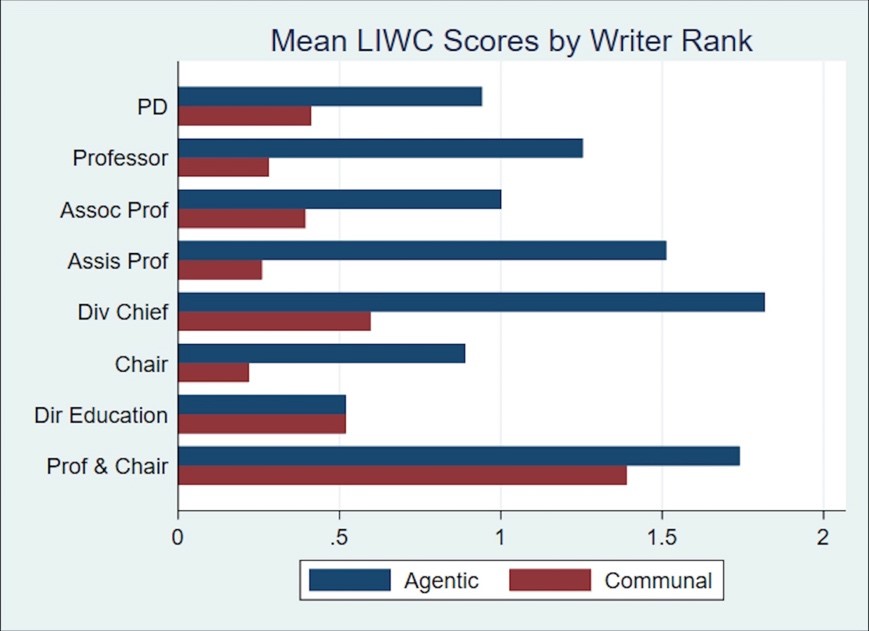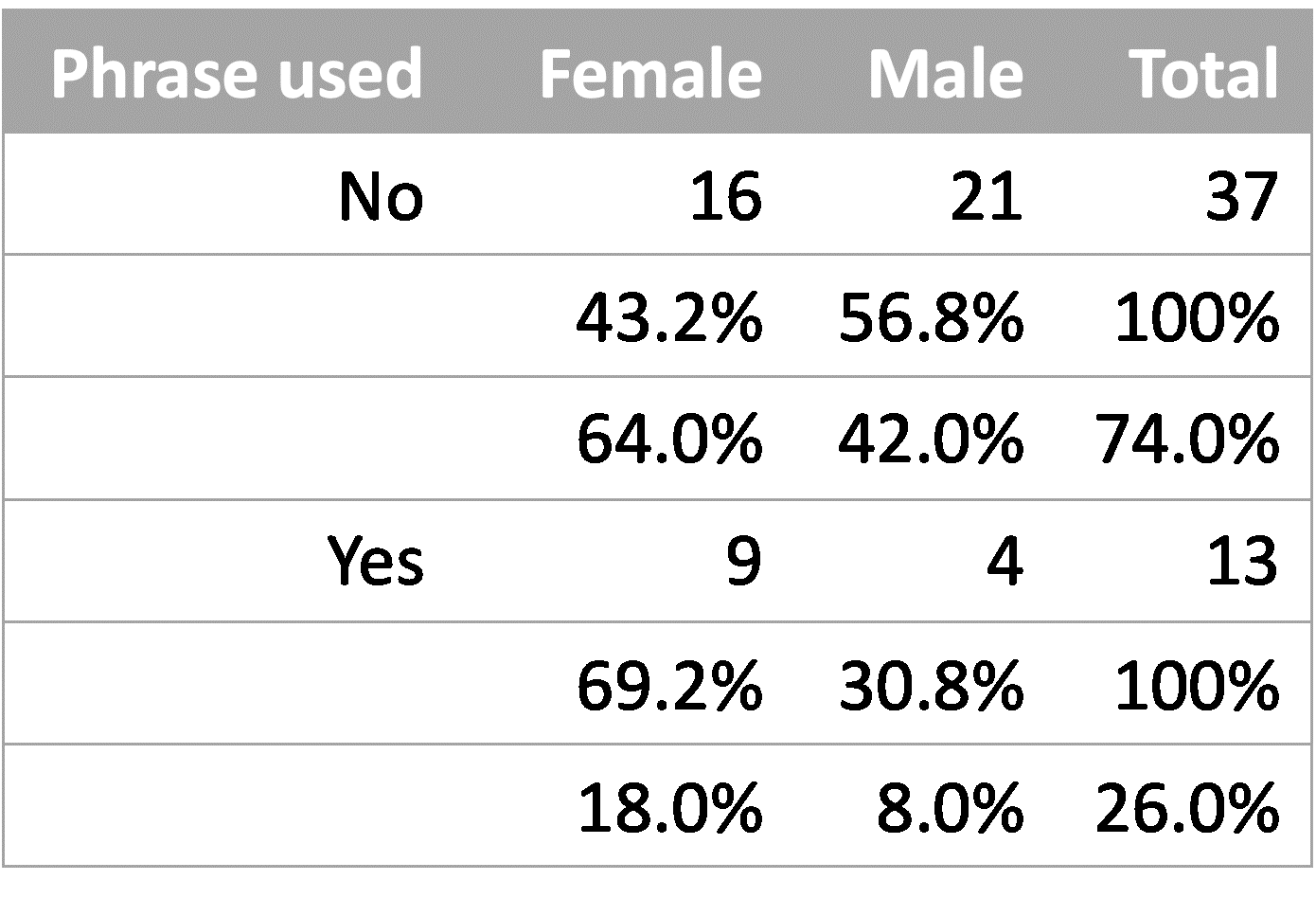Back
Poster Session A
Professional development and education
Session: (0214–0240) Professional Education Poster
0226: Linguistics Biases in Letters of Recommendation Written for Rheumatology Fellowship Applicants
Saturday, November 12, 2022
1:00 PM – 3:00 PM Eastern Time
Location: Virtual Poster Hall
- MK
Margaret Kramer, -None-
University of Nebraska Medical Center
Omaha, NE, United States
Abstract Poster Presenter(s)
Margaret Kramer1, Amy Cannella1, Harlan Sayles2 and Michelene Hearth-Holmes1, 1University of Nebraska Medical Center/Division of Rheumatology, Omaha, NE, 2University of Nebraska Medical Center, Omaha, NE
Background/Purpose:
Methods:
.jpg) Figure 1 : Differences in Agentic and Communal terms used based on gender
Figure 1 : Differences in Agentic and Communal terms used based on gender
 Figure 2 : Differences in Agentic and Communal terms used based on writer’s academic or professional rank
Figure 2 : Differences in Agentic and Communal terms used based on writer’s academic or professional rank
 Table 1 : The Use of Without Hesitation/Reservation within letters of recommendation regardless of gender
Table 1 : The Use of Without Hesitation/Reservation within letters of recommendation regardless of gender
Disclosures: M. Kramer, None; A. Cannella, None; H. Sayles, None; M. Hearth-Holmes, None.
Background/Purpose:
- The importance of letters of recommendation (LoR) grow each year. It is more important than ever that LoR are written in an unbiased manner and objectively evaluate the quality of each candidate.
- In a recent study of LoR written for individuals applying to a single transplant surgery fellowship from 2007 to 2017, female applicants’ letters were significantly more likely to contain communal terms (i.e. compassionate, nurturing, humble) than LoR for males. These terms have been suggested to negatively impact the hiring and promoting process when included in LoR, as compared to the use of agentic terms (i.e. superb, intelligent, exceptional).
- A 2020 study found that applicants from ethnic/cultural backgrounds that are underrepresented in medicine were significantly less likely to contain standout descriptors ( i.e. outstanding, remarkable).
Methods:
- Letters of recommendation were blinded by an independent party to prevent implicit bias on the part of the researcher
- The letters were then analyzed using the Linguistic Inquiry and Word Count (LIWC2015) software program, which automatically scans the letters for words and phrases of our choosing (agentic and communal terms)
- The letters were then run through a publicly available gender calculator (http://slowe.github.io/genderbias/) to find any gender specific terms that the LIWC2015 might have missed
- Each letter was read by a researcher to find any linguistic nuances unable to be unearthed by a computer program
- As shown in Figure 1, our preliminary results indicate that contrary to published studies, in UNMC’s rheumatology department, letters of recommendation (LoR) written for female applicants were more likely to contain agentic terms, and LoR written for male students were more likely to contain communal terms. However, overall letter writers were more likely to use agentic terms than they were to use communal terms, regardless of gender.
- Figure 2 indicates that the differences in use of agentic and communal terms were consistent across most ranks.
- ”Without Hesitation/Reservation” was a standout phrase noticed during analysis. Table 1 indicates that as comparable to the LIWC results, female letters were more likely than male letters to contain this phrase.
- In review of our demographic data, it was revealed that our applicants’ races were 46% white, 14% Indian, and more than 10 other nationalities. Our applicants came from 9 various countries, with 68% coming from the US and 10% from the Indian sub-continent. The mean age of our applicants was 32.9.
.jpg) Figure 1 : Differences in Agentic and Communal terms used based on gender
Figure 1 : Differences in Agentic and Communal terms used based on gender Figure 2 : Differences in Agentic and Communal terms used based on writer’s academic or professional rank
Figure 2 : Differences in Agentic and Communal terms used based on writer’s academic or professional rank Table 1 : The Use of Without Hesitation/Reservation within letters of recommendation regardless of gender
Table 1 : The Use of Without Hesitation/Reservation within letters of recommendation regardless of genderDisclosures: M. Kramer, None; A. Cannella, None; H. Sayles, None; M. Hearth-Holmes, None.

